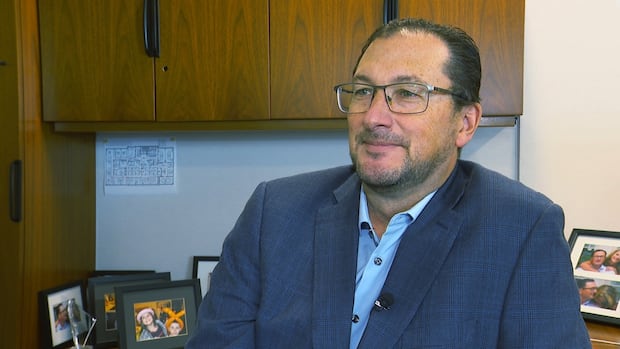Nova ScotiaThe program offers doctors from South Africa trained in family or emergency medicine a more direct pathway to working in Nova Scotia.The province launched the initiative about a year agoMichael Gorman · CBC News · Posted: Aug 19, 2025 12:36 PM EDT | Last Updated: August 19Dr. Gus Grant is the registrar and CEO of the College of Physicians and Surgeons of Nova Scotia. (David Laughlin/CBC)The CEO of Nova Scotia’s college of physicians and surgeons says he’s pleased with the early returns from a pilot project involving doctors trained in South Africa.”It’s already showing significant yield,” Dr. Gus Grant said in a recent interview.Launched about a year ago, the program offers doctors from South Africa trained in family or emergency medicine a more direct pathway to working in the province. Doctors deemed eligible go through an orientation period and then work for about two months with other doctors as they get adapted to the system here.”Then the physicians enter supervised practice where they’re the most responsible physician, they’re caring for patients — they’re the doc on call, if you will,” said Grant.At that point they’re subject to oversight provided by the hospital where they work and are reviewed by college officials.”It’s a staged and gradual introduction to practice to ensure they’re set up to succeed,” said Grant. New clinic aimed at luring foreign-trained doctors to N.S. could soon treat thousands of patients N.S. inks pact with Lebanese university to bring more doctors to province Doctors who successfully complete the process sign two-year return of service contracts with Nova Scotia Health. A health authority spokesperson said the pilot so far has focused on the western zone, but the plan is to expand to the rest of the province.Grant said so far he’s interviewed about 25 doctors from South Africa interested in coming here. Four emergency medicine doctors have been licensed through the pilot and are here working and three more are going through the licensing process. One family doctor has arrived so far and another four have applications open.College officials have “every confidence” that the training tradition and clinical experience in South Africa sets up doctors from there for success when they arrive in Nova Scotia, said Grant.”My expectation is high-level medical care.”It’s a process that’s previously led to other countries, including the United Kingdom, Australia and New Zealand, being recognized as having equivalent medical training to Canada, a designation that can speed up the process to get doctors from those countries licensed and working here.Getting to this point has involved officials from the college, health authority and multiple provincial government departments working together, said Grant.Competing for internationally trained doctorsThe process of choosing a country for potential designation includes examining medical school curriculum, the health-care system, certification process and regulatory structures of the country in question. College officials also examine how similar the local system is to the one in Nova Scotia.”And then it involves building both pathways and structure in Nova Scotia so that when physicians arrive here we can supervise them, support them and soften their landing into practice here so that we know they’re practising safely,” said Grant.That’s vital because at a time when Canada is projected to need 13,000 more primary care physicians (a number that’s expected to grow to 20,000), the only way Nova Scotia can meet its short- and medium-term human resource needs is by recruiting more internationally trained doctors, he said.”So as the country and the province ramps up its production of domestically trained physicians, we have to be able to compete internationally,” said Grant.”We are dependent on internationally trained physicians.”ABOUT THE AUTHORMichael Gorman covers the Nova Scotia legislature for CBC, with additional focuses on health care and rural communities. Contact him with story ideas at michael.gorman@cbc.ca
Pilot program for South African-trained doctors showing early signs of success in N.S.











